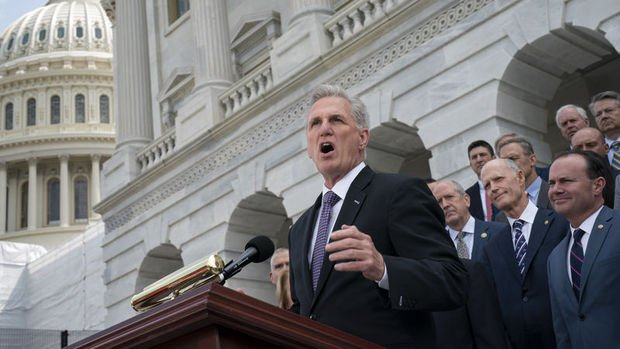US debt limit deal signal
US House of Representatives Speaker Kevin McCarthy stated that an agreement in principle could be reached this weekend in the debt limit negotiations and that it could be voted on in the House of Representatives next week. McCarthy said in a statement to members of the press that he sees grounds for an agreement on the debt limit. Stating that he believes they are in a much better position than they were a week ago, McCarthy stated that the issue is being discussed professionally. McCarthy emphasized that in order to prevent the US from falling into a historic default, the House of Representatives will need to vote on the agreement reached by himself and the negotiators appointed by US President Joe Biden next week. Indicating that an agreement in principle is possible this weekend, McCarthy noted that negotiators are discussing the amount of spending cuts and the size and duration of the debt ceiling increase or suspension. Yellen had given a date of June 1 In a letter she sent to McCarthy at the beginning of the week in order to share updated information on the debt limit, US Treasury Secretary Janet Yellen warned that the country could face a cash shortage if the debt limit was not increased or suspended by June 1. Yellen had stated that waiting until the last minute to suspend or increase the debt limit could seriously harm business and consumer confidence, increase short-term borrowing costs for taxpayers, and negatively affect the US credit rating. US President Joe Biden met with Congressional leaders again this week to discuss the debt limit. Debt limit impasse The federal government in the US has reached a debt limit of $31.4 trillion that could lead to a default. The debt limit, or debt ceiling, means "an upper limit on the amount of money that the US government can borrow to pay its debts." Republicans, who hold the majority in the House of Representatives, are in favor of significant spending cuts in debt limit negotiations. Democrats, on the other hand, insist on increasing the debt limit and reject Republicans' proposals to cut certain spending. There is concern that the debt limit issue, which has become an impasse between Democrats and Republicans, will shake the markets. As recession expectations increase in the US, the showdown between the two parties over the debt limit carries more risk than ever.


